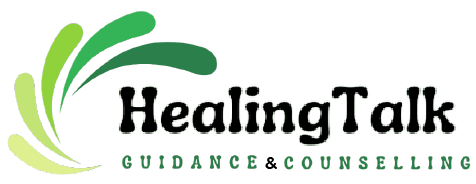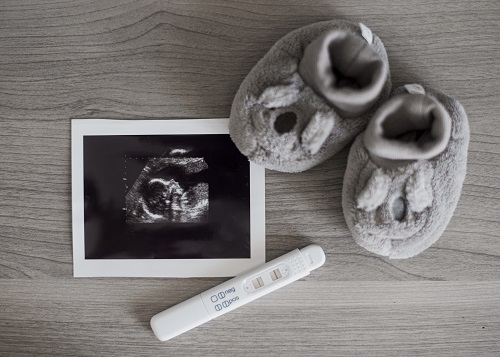Conception to Birth of a Child – Prenatal Period
Prenatal period refers to the period from conception to the birth of a child. It starts with a male sex cell called 'sperm' entering the female sex cell called 'ovum’. Conception is the stage of fertilization of the ovum.
Prenatal period is nine calendar months or ten lunar months of 28 days each. This period may vary between 180 days to 334 days in some cases. Average length of prenatal period is 266 days.
Prenatal development is divided into three stages: (1) Period of Zygote, (ii) Period of Embryo, and (iii) Period of Fetus. These periods are discussed below:
(a) Zygote Period: (Fertilization to end of 2nd Weeks)
Zygote is formed by the male sperm entering the female ovum and its fertilization. It has the genetic material from the father as well as mother yet it does not exactly remember either of them. Zygote looks like unfertilized egg only but it has 46 chromosomes instead of 23 chromosomes which the egg has. These 46 chromosomes are the result of joining of 23 chromosomes from the sperm and the rest 23 from the ovum. Within 2 days after the sperm unites the ovum, Zygote divides into two cells. These two cells get divided repeatedly.
(b) Embryo Period (End of 2nd Week to end of 2nd lunar month)
Gradually, the embryo develops into a miniature human being. This stage, starts from the second week of conception and continues up to the end of second lunar month or until it is 1.2 inches in length. During this period, the cells of the embryo not only multiply but also start taking specific functions. This process is called ‘differentiation’.
It is during this period that the growing fetus is most susceptible to damage from external forces like viral infection, x-rays and poor nutrition. Most of the development problems happen during this period. Quite often, kidney and hearing problems originate in this period.
(c) Fetus Period (End of 2nd lunar month to birth)
By 9th to 12th week, all organs and structures to be found in the baby get developed. By 13th to 16th week, fetus makes active movements including sucking and swallowing some amniotic fluid. Heart has 120-150 beats per minute in this period From 17th to 20th week, eyebrows and lashes appear. Nails also start appearing. Footprints and finger print formation happens in 21st to 24th week. Brain and nervous systems show development in 25th to 28th week. In 29th to 32nd week, journey of development towards an independent life starts. By 38th week, fetus is considered full term.
Other Characteristics Prenatal Period:
(1) Prenatal period is the shortest period in the lifespan development which covers a period of 9 calendar months or 10 lunar months.
(2) Prenatal growth is heavily influenced by hereditary factors and also affects the later life span development.
(3) Development of hereditary potentials can be affected by the favorable or unfavorable conditions of the mother's body. Environmental factors may adversely affect the prenatal development.
(4) Sex of the baby is fixed at the time of conception.
(5) Child grows from a microscopically small cell to an infant weighing 7 pounds during this period.
(6) Prenatal period is most hazardous as compared to other periods in life span development as external factors may have very damaging effect on prenatal development as well as later life.
Environmental Influences on Prenatal Development:
Following are the environmental influences which can affect prenatal development:
1. Diseases in mother: If mother is suffering from disease(s), child development in his later life can be greatly affected. For example, a mother suffering from German measles (or rubella) or diabetes is likely to give birth to a child who may have congenital malformations.
2. Age the mother: There is a high risk of infant defect, prematurity and infant death if the mother is in high ago bracket. In older women, ovum is likely to be affected by aging or exposure to chemicals, drugs and other harmful agents. Similarly, if the mother is too young (below 18 years), the reproductive organs may not be well-developed and can adversely affect the child throughout his life span.
3. Diet and Nutrition of the mother: As the mother is the only source of nutrition for the unborn child, any deficiency in the necessary proteins, fats, carbohydrates rand mineral etc. may adversely affect the new born and may lead to life-long physiological complications in the child. As most of the fetus's growth happens in the third trimester, any deficiency in food at this stage will not only affect the unborn child but may also increase the mother's vulnerability to pregnancy complications and diseases.
4. Stress in the mother: Maternal stress is believed to have extremely harmful effect on the prenatal-development of the unborn child. Emotional acts lead to the secretion of hormones which pass through placenta and affect the child. It has been found in a study that high level of anxiety in mother can result in motor deficiency in child.
5. Drugs & Chemicals: It is necessary to avoid chemicals and drugs (except those recommended by a doctor) during pregnancy as these can adversely affect the growth of the child. Even the common use drugs, sold over the counter, like aspirin or pain killers can leave everlasting adverse impact on the child. Alcohol use and tobacco smoking by the mother is known to lead to complications in prenatal development.
6. Radiation: A serious damage can be caused to fetus by radiation. Sometimes the therapeutic radiation, if administered without due care, can cause grievous harm or even abortion. The natural radiation in the area where the pregnant woman works or resides can also have similar adverse effects.
7. Abortion: Pregnancy can get terminated due to natural causes as well as there can be medical termination of pregnancy. In India, Medical Termination of Pregnancy (MTP) Act, 1971 legalizes abortions up to 20 weeks old fetus but if the woman's life can be endangered by child birth, pregnancy can be terminated even after 20 weeks.
8. Rh. Incompatibility: We all have a blood type (O, A, B, and AB). It can be Rh+ or Rh-. If father has Rh+ and mother has Rh- and the unborn child develops Rh+, there can be a serious problem as the mother's system may manufacture antibodies to ward off foreign Rh protein. These antibodies can destroy child's red blood cells, and disability can cause death or intellectual disability.



